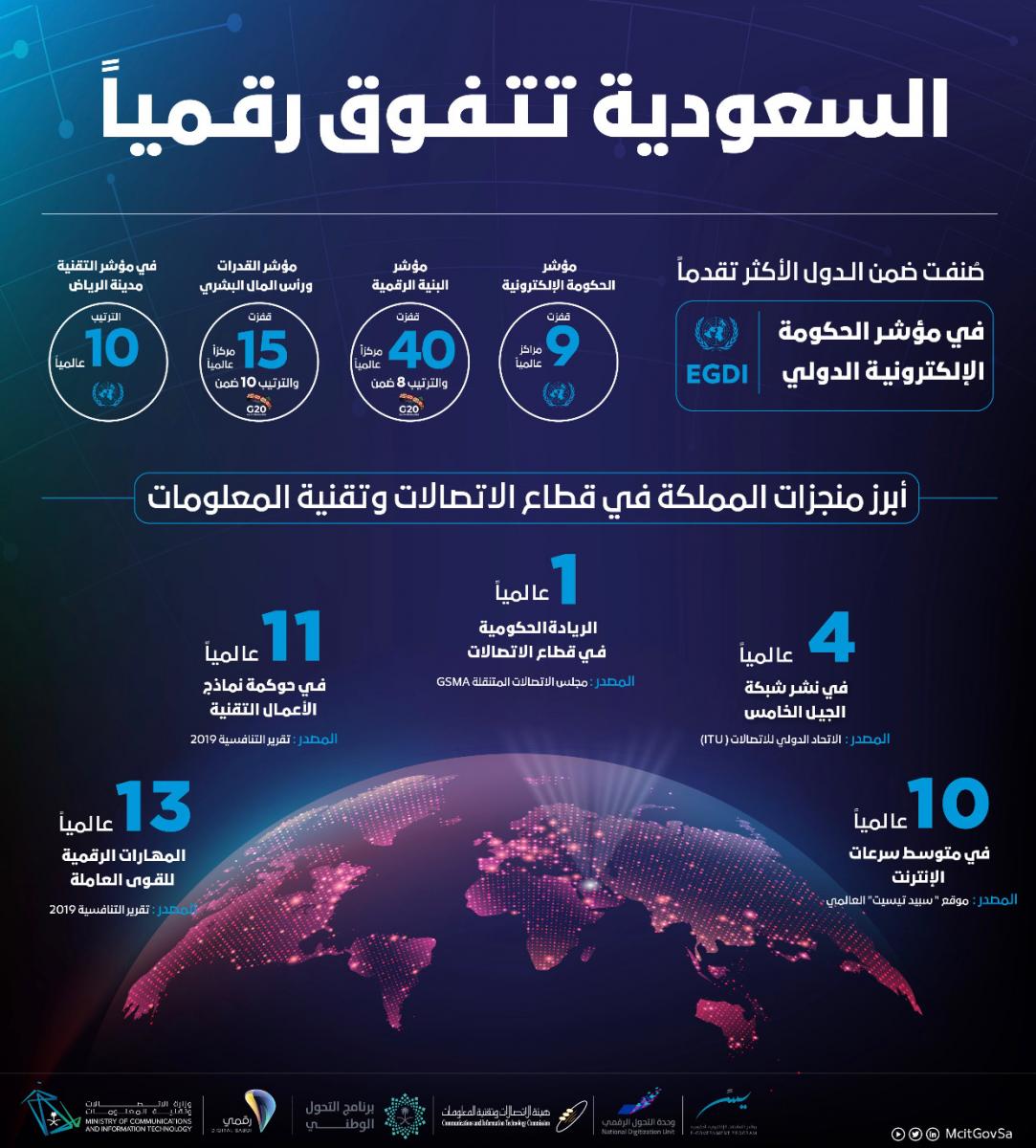
The General Supervisor of the Department of Digital Transformation at Umm Al-Qura University, Dr. Hanaa Yamani, stressed the importance of the national approach to enable digitization in the systems of transactions and services provided by government sectors to its clients, and its role in raising the level of sustainable digital maturity and capability and developing the infrastructure using the latest technologies. This reflected positively on advancing the ranking of the Saudi Kingdom to the 9th place in the United Nations' index for the development of e-government.
The General Supervisor of the Department pointed to the increase of digital mobility in the various fields and the shift being performed to activate digital initiatives and achievements, along with the increase of its automation to keep in line with the goals of the National Transformation Program for the Saudi Vision 2030. She also emphasized the success achieved by the university in completing the journey of learning and working remotely in the aftermath of the Coronavirus pandemic. This is in addition to the skills that the students gained in employing technology and managing it in dealing with different crises through their participation in training courses and development projects, in cooperation with specialized experts in the field of technology.
The university was able, by managing the digital transformation, to form the institutional infrastructure office in order to raise the efficiency of performance and offer integrated services compatible with the technology plans and national initiatives. It was also able to establish a specialized team to follow up on the recommendations of the e-government program, which are facilitated and highlighted as required to reach the highest standards of excellence. This is in addition to issuing digital manuals to produce an inventory of the technical services and turn the crisis into an opportunity for a change for the better.
As part of the university's endeavors to enhance the work mechanism provided to its sectors, it issued a model for making an inventory of the digital services, which totaled about 159 services ranging from informational, procedural, interactive and complementary services. They are classified into 10 academic services and 43 student services. It also listed 26 services for employees and 4 services for external users, in addition to 67 academic, administrative and joint research services provided for its beneficiaries.
Dr. Hanaa Yamani said that the university, represented by its vice presidencies and deanships, worked on developing electronic systems for administrative transactions within the system and also established a unit to measure the satisfaction of the clients with regard to the services provided and achieving governance. Moreover, it discussed the development of digital programs with the relevant authorities through many visits to the digital transformation departments inside and outside the Saudi Kingdom, in the context of reviewing technology developments and enriching the experience of the complete transformation of the e-learning environment.
Dr. Hanaa Yamani examined the future of the Saudi digital transformation and electronic prosperity in achieving strategies for upgrading the services of the local community in the light of the continued competition and the progress made within the rankings of the Global Index. She explained this referring to the Saudi Kingdom's management of the Coronavirus crisis, which involved the implementation of digital plans that contributed to meeting the immediate needs of the citizens and to completing the work of government agencies with high efficiency that proved their effectiveness and put a fingerprint on the transformation of the future global digital industry.
It is noteworthy that the Kingdom has achieved global progress in the basic indicators used to assess the development of e-government, which placed it among the most advanced 193 countries in the world. It leapt 40 places in the index of digital structure and 15 places in capabilities and human capital. Finally, Riyadh ranked 10 among the cities of the world in the technical sub-index for electronic services.